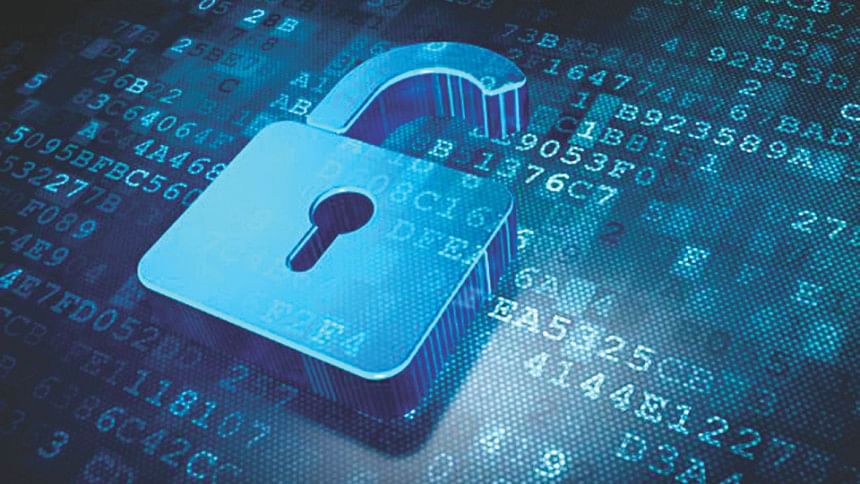Clouds over privacy in virtual world

Online surveillance, interception and collection of personal data have increased vastly in Bangladesh as the user on internet has increased rapidly in last couple of years. Online surveillance means close and continuous observation of a person or group who are under suspicion or the act or observing or the condition of being observed on online and interception means opening electronic transmission before they reach to the intended recipient.
However, the government recently plans to take a variety of projects to tackle growing cyber threats by monitoring online and social media activities round-the-clock. A 'Cyber Threat Detection and Response Network' centre will be set up and the government will be able to remove any contents and even block any sites anytime that includes online activities as well. Under the system, all international internet gateways will be connected with the network and a team will monitor online activities. The system will also identify the user who uses private internet protocol, project documents show. A similar cell named National Telecom Monitoring Cell (NTMC) has been working under the home ministry since February 2014. It conducts interception to help intelligence and law enforcement agencies in the name of state security. New sophisticated equipment used under these projects apparently enables the government to keep watch on internet users 24/7. Thus, it may criminalise online activities and shrink space for intellectual discourse by promoting self-censorship.
Hence internet users will be monitored under the internet surveillance technology that has the potential to infiltrate people's digital footprint on a mass scale. With these types of technologies the lines between mass surveillance, noble intentions of curbing online radicalisation and reducing cyber crimes can, and most likely will be blurred. People are at risk of being “monitored” through their personal data and internet activity regardless of their intention. In addition, these mechanisms may unreasonably deny citizen's right and restrict critical thinking, the questioning of the status quo, and take away from individuals one of their most powerful weapons — the right to speak freely without fear.
Nevertheless, the right to privacy is not an absolute right. Once an individual is under suspicion and subject to formal investigation by intelligence or law enforcement agencies, that individual may be subjected to surveillance for entirely legitimate counter-terrorism and law enforcement purposes. However, there is an urgent need for states to revise national laws regulating modern forms of surveillance and interception to ensure that these practices are consistent with domestic and international human rights law. The absence of clear and up-to-date legislation creates an environment in which arbitrary interferences with the right to privacy can occur without commensurate safeguards. State must protect the privacy of its citizens in compatible with Article 17 of the International Covenant on Civil & Political Rights (ICCPR) and Article 43 of the Constitution of Bangladesh.
However, regarding the right to privacy, the UN General Assembly affirmed that the rights held by people offline must also be sheltered online, and it called upon all States to respect and protect the right to privacy in digital communication. The General Assembly called on all States to review their procedures, practices and legislation related to communications surveillance, interception and collection of personal data and emphasised the need for States to ensure the full and effective implementation of their obligations under international human rights law.
Collecting massive amounts of computer-accessible information has become very easy these days. The reality is that snooping on emails, Facebook chats and Viber calls is tremendously easy for the tech brokers who enable this practice as part of a booming industry. Internet surveillance to tech companies is as same as what war time is for arms producers. For them it is a propitious time for soaring profits and stock prices. As the relationship between national security and individual liberties becomes murkier, the state surveillance, policing, and control gain favour globally.
In light of the absence of internet privacy law, the government has enormous power over the use of citizens' personal information and internet activity since nothing demarcates lawful use of user data from its unlawful use. However, a law is needed to ensure safe online environment for people; not to infringe their privacy.
The writer is an Assistant Professor of Law at Dhaka International University.

 For all latest news, follow The Daily Star's Google News channel.
For all latest news, follow The Daily Star's Google News channel. 



Comments